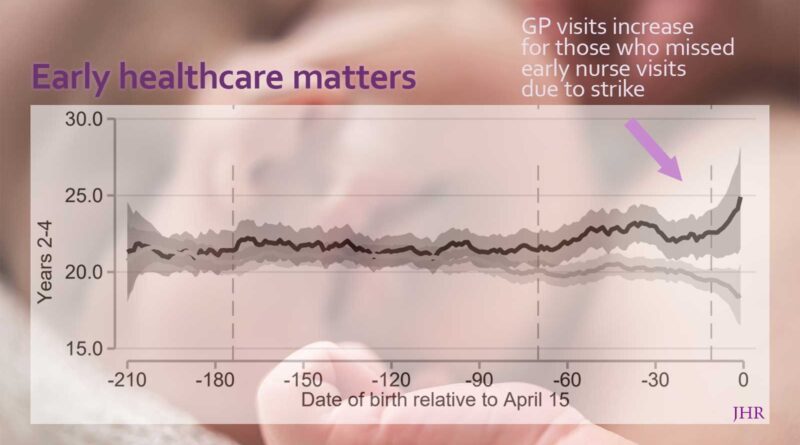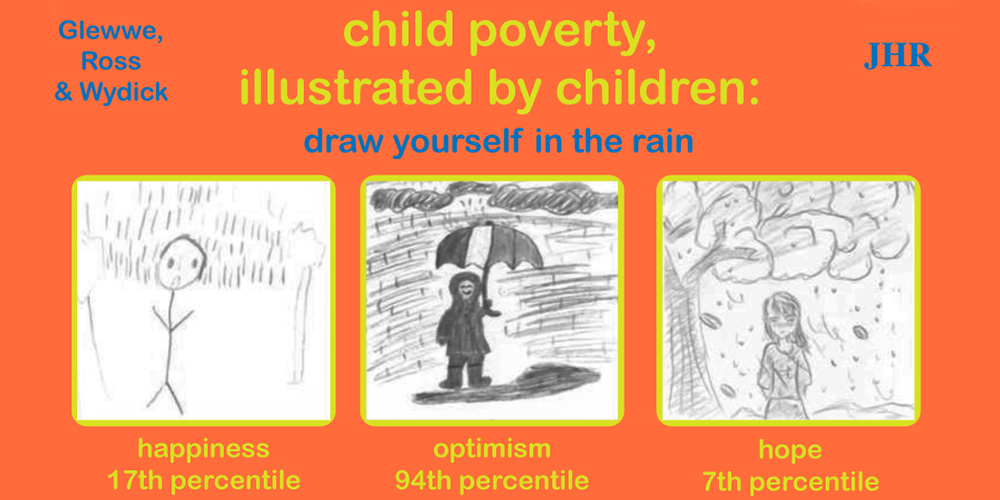Strike Cancels Nurse Visits to New Moms and Babies—New Research Shows How Important These Missed Visits Are
Mounting evidence documents the negative impact of exposure to adverse early-life circumstances for the health and human capital development of children, but we know less about the importance of public policies, such as access to preventive healthcare, intended to support new families’ well-being. In many settings, policy decisions focus on the ways in which to design those policies—whether to provide them universally or to those in special need, at what intensity, and with which specific support. Researchers Jonas Hirani, Hans Henrik Sievertsen and Miriam Wüst examined policy design in the context of universal preventive healthcare for new families by studying the importance of the timing of preventive care visits in the family home by trained nurses in Denmark for all new families with infants.
They asked: What is the relative importance of early vs. later nurse visits for infants’ and mothers’ health? They look at data for families that were all affected by a 2008 nurse strike during the first year of their child’s life. All families were exposed to the strike and had a higher probability of forgoing a nurse visit than parents in other years, but they experienced these missed visits at different ages of their child. Consequently, they missed out on age-specific health screenings, information, counseling, and potentially referrals to other healthcare professionals.
The researchers document that timing matters. Missing an early during the first year of the infant’s life increases subsequent child (and mother) contacts to health professionals. Missing later visits did not have the same effect.
As illustrated in the figure from the paper, the increase in child GP visits plotted against children’s date of birth relative to the start of the strike shows that strike-affected families experienced an uptick in the need to see the doctor when their children were two to four years old.
The researchers show that the likely reasons for this result include both nurses’ focus on timely maternal mental health screenings (thus likely initiating early additional care, preventing downstream costs of mental health treatments, and improving family well-being) and information provision to new families (about important investments in infant health).
Taken together, the results suggest that early preventive nurse visits (during the first weeks of a child’s life) outweigh costs even under very conservative assumptions. Thus, early universal nurse visits are a cost-effective intervention to promote children’s and mothers’ health, and universal early investment programs should put special emphasis on the initial period after the birth of a child.
Read the article in the Journal of Human Resources: “Beyond Treatment Exposure–The Impact of the Timing of Early Interventions on Child and Maternal Health,” by Jonas Cuzulan Hirani, Hans Henrik Sievertsen and Miriam Wüst
***
Jonas Cuzulan Hirani is a senior researcher at the Danish Center for Social Science Research (VIVE). Hans Henrik Sievertsen is an associate professor at the Department of Economics, University of Bristol and a professor with special responsibilities at the Danish Center for Social Science Research (VIVE) (@hhsievertsen). Miriam Wüst is an associate professor at the University of Copenhagen, Center for Economic Behavior and Inequality (CEBI), Department of Economics and an affiliated researcher at the Danish Center for Social Science Research (VIVE) (@miriamwuest).




